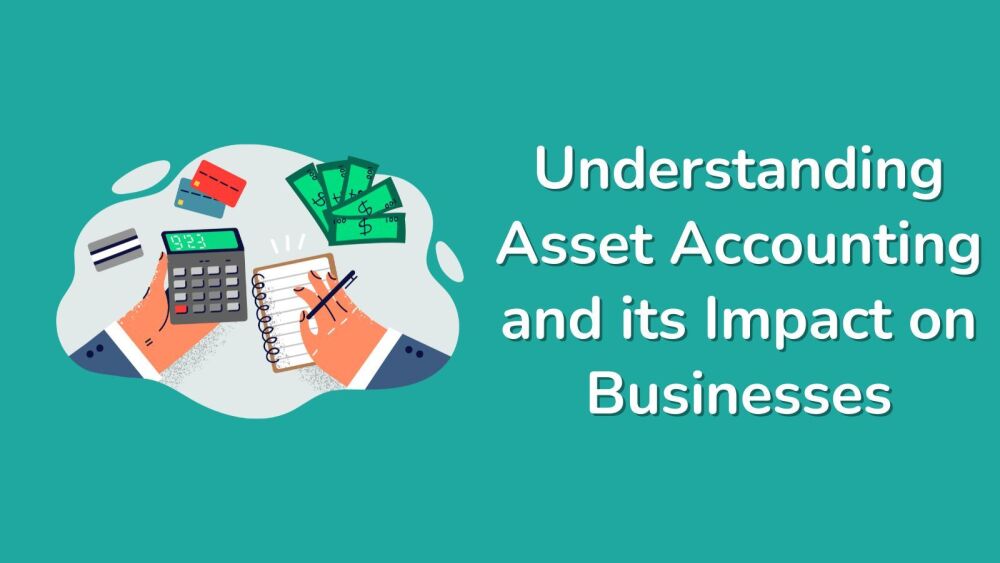Understanding Asset Accounting and its Impact on Businesses
Posted on
Asset accounting is a crucial aspect of financial management that plays a pivotal role in the overall health and growth of a business. It involves the tracking, valuation, and reporting of a company's assets—both tangible and intangible. These assets can range from physical items like machinery, buildings, and inventory to intangible assets such as patents, trademarks, and goodwill.
By accurately accounting for these assets, businesses can gain a clear understanding of their value, ensure compliance with financial and tax regulations, and make informed decisions about future investments and growth strategies.

The Core of Asset Accounting
At the heart of asset accounting is the process of recording the acquisition, depreciation, amortisation, and disposal of assets. This requires meticulous attention to detail and adherence to accounting standards and principles. Depreciation and amortisation, in particular, are critical processes that allocate the cost of tangible and intangible assets, respectively, over their useful lives. This not only reflects the wearing down or usage of assets over time but also impacts the business's financial statements and tax liabilities.
Strategic Decision-Making and Financial Health
Asset accounting is not just about compliance or record-keeping; it's a strategic tool that can significantly impact a business's financial health and decision-making. Understanding the value and cost of assets enables businesses to:
-
Assess Return on Investment (ROI): By evaluating the profitability and efficiency of asset use, companies can determine which investments are yielding positive returns and adjust their strategies accordingly.
-
Manage Cash Flow: Effective asset management helps businesses plan for major purchases, asset replacements, and maintenance, ensuring that cash flow is optimised.
-
Enhance Operational Efficiency: Tracking the condition and performance of assets allows businesses to schedule timely maintenance, preventing costly downtimes and extending asset lifespans.
-
Secure Financing: A clear picture of a company's assets can support credit applications, as lenders often require detailed financial records, including asset valuations.
The Ripple Effect of Asset Accounting on Business Operations
The influence of asset accounting extends beyond financial statements and tax filings; it has a direct impact on various aspects of business operations:
-
Budgeting and Forecasting: Accurate asset values contribute to more reliable budgeting and financial forecasting, enabling businesses to allocate resources more efficiently.
-
Risk Management: Asset accounting helps in identifying and valuing assets that may be at risk of becoming obsolete or significantly depreciated, allowing businesses to mitigate these risks proactively.
-
Regulatory Compliance: Keeping abreast of changing accounting standards and regulations regarding asset depreciation and valuation is crucial for compliance and avoiding potential penalties.
-
Investor Relations: Transparent and accurate asset accounting can build investor confidence by demonstrating the company's commitment to financial integrity and accountability.
Integration with Overall Financial Strategy
Asset accounting should not stand in isolation but be integrated with the company's overall financial strategy. This integration ensures that asset management aligns with broader financial goals, such as profitability, liquidity, and growth. For instance, the decision to sell or retain an asset should consider its impact on cash flow and income statements, as well as strategic objectives like expanding into new markets or investing in innovation. By closely aligning asset accounting with financial planning, businesses can optimise their asset portfolios for both short-term performance and long-term value creation.
Environmental and Social Considerations
In today's business environment, asset accounting also intersects with environmental and social governance (ESG) considerations. The way a company manages its physical assets can have significant environmental impacts, from energy consumption to waste production. Additionally, the valuation and depreciation of assets must consider potential future costs related to environmental compliance and remediation. Social factors, such as the impact of asset utilisation on community welfare and employee health, are increasingly relevant. Transparent accounting for these considerations not only reflects corporate responsibility but can also mitigate risks and enhance the company’s reputation with consumers, investors, and regulators.
The Role of Technology in Asset Management
Advancements in technology play a pivotal role in enhancing asset accounting practices. Modern asset management software and systems offer powerful tools for tracking, valuing, and analysing assets in real time. These asset management technologies can automate many aspects of asset accounting, from calculating depreciation to generating compliance reports, thereby reducing errors and freeing up valuable resources for strategic analysis. Furthermore, the integration of Internet of Things (IoT) devices allows for real-time monitoring of physical assets, providing data on usage, performance, and maintenance needs. This technological integration into asset accounting not only improves accuracy and efficiency but also provides strategic insights that can drive better business decisions.
Key Considerations in Asset Accounting
Implementing effective asset accounting involves several key considerations:
-
Selection of Depreciation Methods: Choosing the right method (e.g., straight-line, declining balance) can affect financial outcomes and tax obligations.
-
Valuation of Intangible Assets: Determining the fair value of intangibles like intellectual property and goodwill requires careful analysis and, often, expert valuation services.
-
Lifecycle Management: Tracking the acquisition, maintenance, and disposal of assets ensures that records are up-to-date and reflect the true financial condition of the business.
-
Technology Utilisation: Leveraging asset management software can streamline tracking, improve accuracy, and provide insightful analytics for decision-making.
Final word
Asset accounting is a dynamic and complex field that requires a strategic approach to manage effectively. By thoroughly understanding and implementing sound asset accounting practices, businesses can not only comply with legal requirements but also enhance their operational efficiency, financial stability, and strategic agility. As companies grow and evolve, so too should their approach to asset accounting, ensuring it remains aligned with their broader business objectives and market realities.

